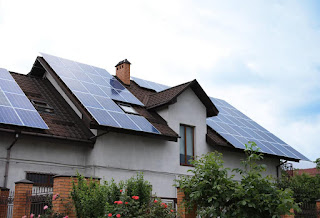Solar Battery Storage - Guide to Pick the Best One
As the world turns its focus toward sustainable energy solutions, solar power has emerged as a frontrunner. Harnessing the sun's abundant energy through solar panels is a transformative step, but to truly maximize the benefits, efficient solar battery storage is essential. This guide aims to help consumers navigate the diverse landscape of solar battery options, empowering them to make informed choices and optimize their solar energy systems.
Guide to Pick the Best Solar Battery Storage
1.
Understanding Solar Battery
Basics:
Solar battery storage systems are designed to store excess
energy generated by solar panels during periods of sunlight for later use, such
as during the night or on cloudy days. These batteries are a crucial component
of a solar power setup, ensuring a continuous and reliable power supply.
2.
Capacity and Energy Needs:
The first consideration in selecting a solar battery is
determining your energy needs. Assess your average daily energy consumption and
any specific requirements, such as powering appliances during outages. Choose a
battery with sufficient capacity to meet these needs and provide a comfortable
margin for unexpected spikes in usage.
3.
Type of Battery Technology:
Various battery technologies are available, each with its
own set of advantages and disadvantages. Common types include lithium-ion,
lead-acid, and saltwater batteries. Lithium-ion batteries are popular for their
high energy density, longer lifespan, and faster charging capabilities, but
they may come with a higher upfront cost.
4.
Depth of Discharge (DoD):
The depth of discharge refers to the percentage of a
battery's capacity that can be used before recharging. A higher depth of
discharge allows for more usable energy but can impact the battery's lifespan.
Consider your usage patterns and choose a battery with an appropriate depth of
discharge to balance energy needs and longevity.
5.
Cycle Life and Warranty:
The cycle life of a battery indicates how many
charge-discharge cycles it can undergo before its capacity significantly
diminishes. A longer cycle life is desirable for maximizing the longevity of
your solar battery storage system. Additionally, check the manufacturer's
warranty, which often reflects their confidence in the product's durability.
6.
Charge and Discharge Rate:
The charge and discharge rate determines how quickly a
battery can be charged or discharged. Understanding these rates is crucial for
sizing your solar power system appropriately. If rapid charging or discharging
is a priority, choose a battery with high power ratings.
7.
Compatibility with Solar
Inverter:
Ensure that the solar battery is compatible with your solar
inverter. Some batteries may require specific inverters to function optimally.
Compatibility issues can lead to inefficiencies and impact the overall
performance of your solar power system.
8.
Scalability:
Consider the scalability of the solar battery storage
system. If your energy needs are likely to increase in the future, choose a
system that allows for the addition of extra batteries. This flexibility
ensures that your solar power setup can adapt to changing requirements.
9.
Smart Features and
Monitoring:
Some modern solar batteries come equipped with smart
features and monitoring capabilities. These include remote monitoring, mobile
apps, and integration with smart home systems. Investing in a battery with
these features enhances user experience and allows for better control and
optimization of energy usage.
Tips to Pick the Best Solar Battery Storage - In a Nutshell
Choosing the best solar battery storage system is a crucial
step in maximizing the benefits of a solar power setup. By considering factors
such as capacity, battery technology, cycle life, and compatibility, consumers
can make informed decisions that align with their energy needs and
sustainability goals. With the right solar battery in place, individuals can
enjoy a reliable and eco-friendly power source, contributing to a more
sustainable and energy-efficient future.
Useful Links:




Comments
Post a Comment